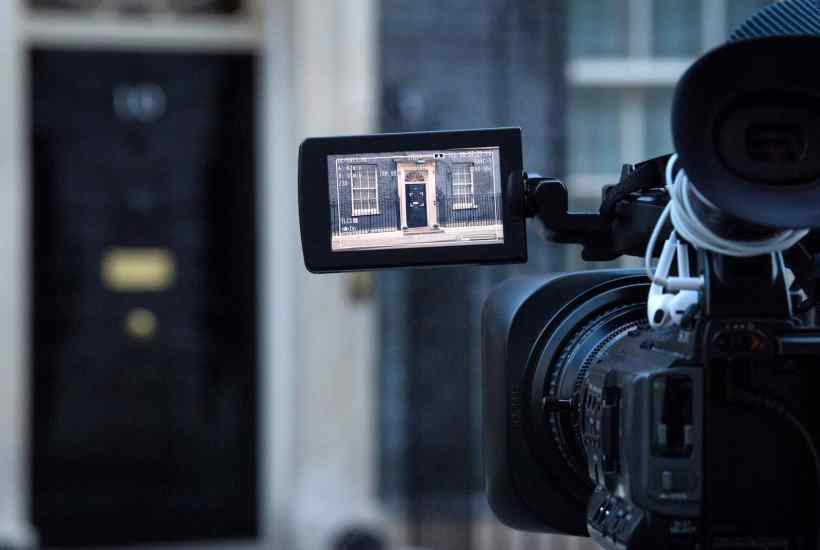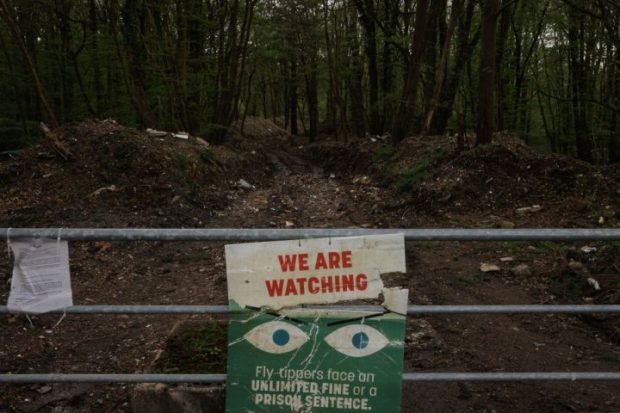Rudy Giuliani has had quite the trajectory in public life. Those of us who remember the days after 9/11 will still have a picture of a man who emerged from that disaster as a credit to his city and a credit to his office. If you only picked up the Rudy Show midway through season three, however, you’d have met the wild-eyed oddbod with hair dye running down his temples, spouting conspiracy theories outside a porn shop in a down-at-heel strip mall and — who even knew this was possible? – being suspended as a lawyer in Washington for dishonesty. His story arc was a mash-up of Breaking Bad and My Cousin Vinnie.
The latest plot twist came last week when he was unmasked as a departing contestant at the taping of a forthcoming episode of The Masked Singer. The reports I’ve read haven’t specified, I regret to say, what Giuliani was dressed as — a giant chicken, or a singing hot dog, or what have you. Two of the show’s judges — Robin Thicke and Ken Jeong — are said to have stormed off the set in protest.
There’s quite a bit to unpack here, I think, once we stop laughing at the sheer silliness of it. Here are a pair of figures from light entertainment making a political protest — while a politician who has been involved in some of the most serious events in his country’s history stands grinning in some ludicrously feathered suit.
As the cliche has it, politics is ‘showbusiness for ugly people’. This is a quipping recognition that in both lines of work celebrity is currency: you get famous doing them, and the more famous you are the easier they are to do. People clocked in the middle of last century that a career in showbiz might be the springboard for a career in politics (think Ronald Reagan, Jesse Ventura, Clint Eastwood and Arnold Schwarzenegger). Now it goes the other way too. Donald Trump, it’s plausibly speculated, only originally ran for president as a publicity stunt. Ed Balls, Anne Widdecombe, George Galloway and Nadine Dorries have hopped without a second thought between parliamentary politics and the studios of Bake Off, Strictly, or I’m A Celebrity.
Fame is an extremely fungible token. And now that celebrity itself — your profile, your personal brand — seems to be the defining rather than the accidental quality of anyone in public life, we’re sliding towards the idea that there really isn’t any difference between politics and showbiz. Fame and image are what counts, and they’re interchangeable ways to make bank. That’s to elevate a hoary quip to a system of public life, and it seems to me a bad road down which we have travelled too far.
Because along the way a sort of moral compartmentalisation occurs. It leads to a mindset that says, essentially, that the things that you do as a politician are not connected in any way with the rest of your life. They’re a gig, like any other: stint at the Home Office; quick gig on Masterchef; panto in Guildford. It says not only that politics is a performance (which of course it is), but that a performance is all that it is. You’re onstage… and then you’re offstage, off the clock, not answerable.
One minute you’re trying to overturn an election; the next your agent is inquiring about your availability for The Masked Singer. When you’re on the news channel, they’re denouncing you for sedition. But flip over to ITV and you’re doing a foxtrot in a sequined leotard and everyone’s saying what a good sport you are.
There’s a sense that would seem somehow vulgar, somehow against our thrilling spirit of postmodern sophistication, to connect the two things. But connect them, I think, we should. One of the troubling aspects of Partygate has been the suggestion that there were journalists who knew about those parties; maybe the odd one who was even at them, but didn’t report them.
What would the reason for that be? My hunch is that it would have seemed good manners. The politicians were offstage, in the dressing room. They were, as it were, off the clock, and wouldn’t it make you a snoop and a heel to rat them out for it? Here is a version of the same spirit that condemned Christopher Hitchens for outing Sid Blumenthal when he used a private dinner party to smear Monica Lewinsky: it wasn’t playing the game. Hitchens, in that case, was right not to play the game because it wasn’t a game.
In showbiz, you are taking a role: you’re on, and you’re one thing; you’re off, and you’re another. There’s nothing at stake at all, and the less consistent you are, the less rooted as a character, often the better you are as a performer. But in politicians we do look for the quality we call integrity: that sense that the persona being presented is a consistent one, that it’s rooted in something, that it can be trusted… that it is, one way or another, serious.
It’s not just a branch of the entertainment industry. There really is something at stake. That seems to me to bear on the fury now rightly directed at our first showbiz Prime Minister: that for him it’s all a game, it’s all a laugh, and that only a rube would presume to connect what he does when he’s offstage with what he says on the telly. When he goes, so what? Next gig. He’ll hit the after-dinner speech circuit, do the chatshows, sell a memoir.
These days, there’s more moral seriousness in showbiz. Robin Thicke, of all people, was the one to take a moral stand on Rudy Giuliani. Ant and Dec, of all people, assumed the gravity to denounce the Prime Minister over Partygate, while his colleagues laughed off his vicious smear about Keir Starmer and Jimmy Savile as part of the ‘cut and thrust of parliamentary debate’. We’d be in a better state if we had fewer method actors and more method politicians.
Got something to add? Join the discussion and comment below.
Get 10 issues for just $10
Subscribe to The Spectator Australia today for the next 10 magazine issues, plus full online access, for just $10.



















Comments
Don't miss out
Join the conversation with other Spectator Australia readers. Subscribe to leave a comment.
SUBSCRIBEAlready a subscriber? Log in